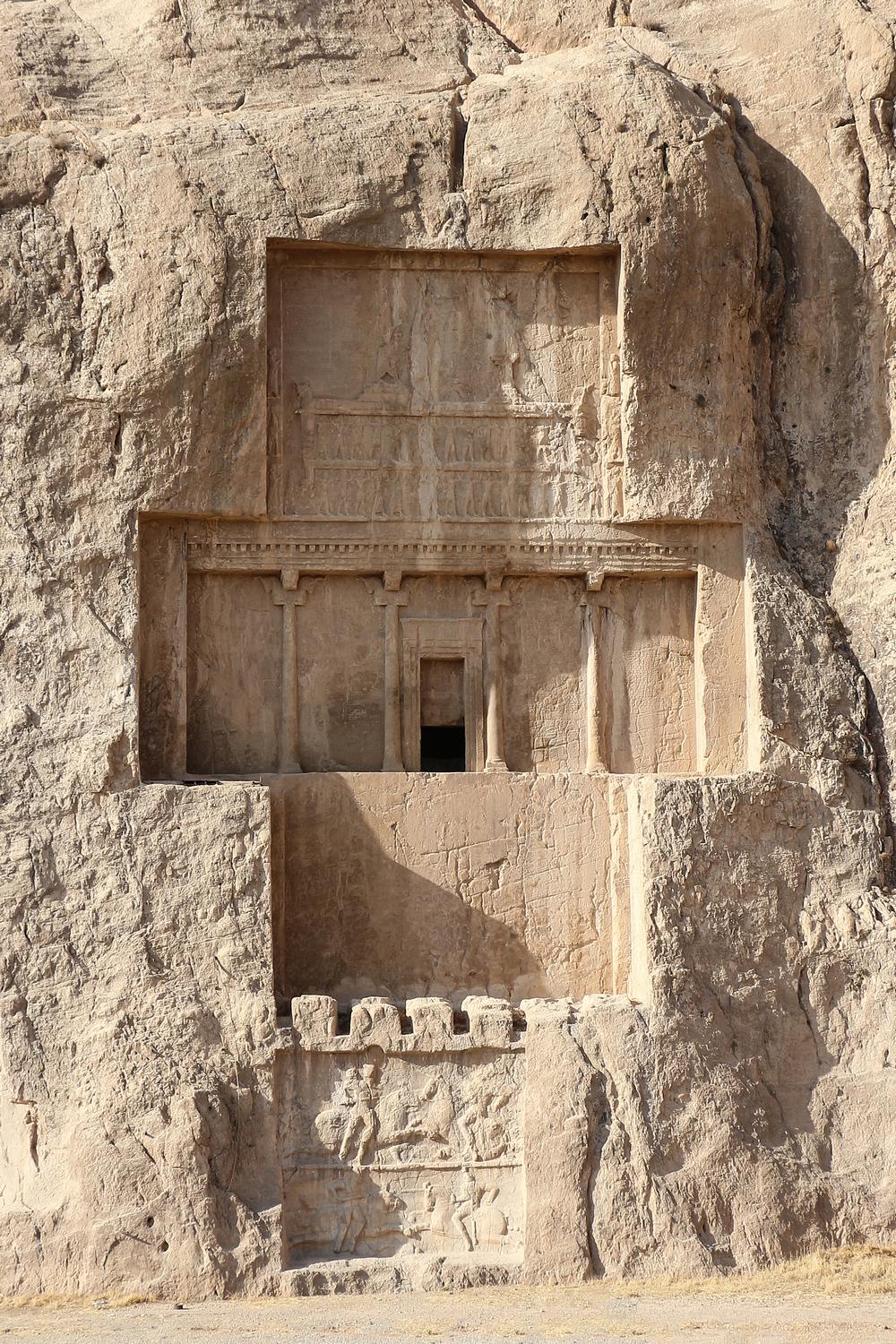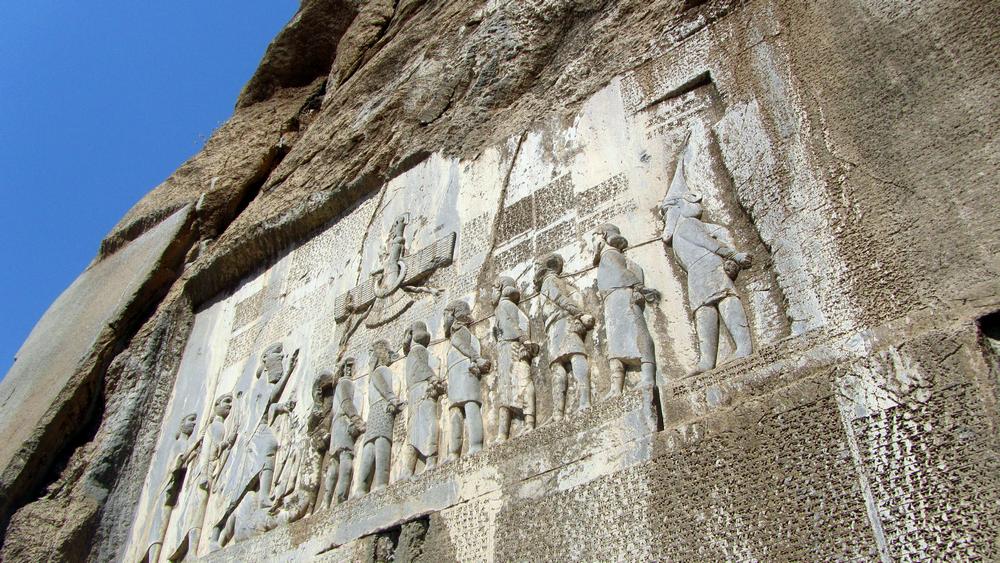Who is…
Darius in the Bible
Hebrew: דֱּרְיָוֵשׁ —transliteration: Dareyavesh —meaning: the holder, or supporter, or he who holds firm the goodness
This was the name of several Persian kings mentioned in Scripture.
-
Darius the Mede
“Now I, in the first year of Darius the Mede, I stood to strengthen and to be a fortress for him. —Dan. 11:1
He is “the son of Ahasuerus, of the seed of the Medes” (Daniel 9:1). On the death of Belshazzar the Chaldean he “received the kingdom” of Babylon as governor from King Cyrus.
During his brief reign (538-536 BC) Daniel was promoted to the highest post (Dan. 6:1-2); but on account of the malice of his enemies he was cast into the den of lions. After his miraculous escape, a decree was issued by Darius enjoining “reverence for the God of Daniel” (Dan. 6:26).
This king was probably the “Astyages” of the Greek historians. Nothing can, however, be with certainty affirmed regarding him. Some are of opinion that the name “Darius” is simply a name of office, equivalent to “governor,” and that the “Gobryas” of the inscriptions was the person intended by the name.
-
Darius, king of Persia and son of Hystaspes
also known as: Darius the Great
 Tomb of Darius I (Darius the Great), at Naqsh-e Rustam, Fars Provicen, Iran, one of the 4 Achaemenid king tombs situated high above ground level. It is located 8 miles (13 kilometers) northwest of from ancient Persepolis, Persia (now Iran). SATELLITE VIEW (Google Maps) Photograph by Bernard Gagnon. License: CC BY 4.0
Tomb of Darius I (Darius the Great), at Naqsh-e Rustam, Fars Provicen, Iran, one of the 4 Achaemenid king tombs situated high above ground level. It is located 8 miles (13 kilometers) northwest of from ancient Persepolis, Persia (now Iran). SATELLITE VIEW (Google Maps) Photograph by Bernard Gagnon. License: CC BY 4.0It was with the army of this king that the Greeks fought the famous battle of Marathon (490 BC).
He is of the royal family of the Achaemenidae, and is the eldest of 5 sons of Hystaspes (Persian satrap of Bactria and Persis). His religion was Zoroastrianism.
He did not immediately succeed Cyrus on the throne. There were two intermediate kings—Cambyses (the Ahasuerus of Ezra), the son of Cyrus, who reigned from 529-522 BC, and was succeeded by a usurper named Smerdis, who occupied the throne only ten months, and was succeeded by this Darius (521-486 BC).
Smerdis was a Margian, and therefore had no sympathy with Cyrus and Cambyses in the manner in which they had treated the Jews. He issued a decree prohibiting the restoration of the temple and of Jerusalem (Ezra 4:17-22). But soon after his death and the accession of Darius, the Jews resumed their work, thinking that the edict of Smerdis would be now null and void, as Darius was in known harmony with the religious policy of Cyrus.
The enemies of the Jews lost no time in bringing the matter to the notice of King Darius, who ordered a search to be made for the decree of King Cyrus. It was not found at Babylon, but at Achmetha (Ezra 6:2). Upon reading it, King Darius issued a new decree, giving the Jews full liberty to do their work in Judea, at the same time requiring the Syrian satrap (governor of a Persian province) and his subordinates to give them all needed help.
During his reign the Jews enjoyed much peace and prosperity. He was succeeded by his son Ahasuerus, known to the Greeks as Xerxes I, who reigned for 21 years.
 Darius’ Behistun Inscription (Persia) written in cuneiform dating to about 520 BC UNESCO World Heritage Site. Photo by PersianDutchNetwork. License: CC BY-SA 4.0.
Darius’ Behistun Inscription (Persia) written in cuneiform dating to about 520 BC UNESCO World Heritage Site. Photo by PersianDutchNetwork. License: CC BY-SA 4.0.An ancient inscription (above) at Persepolis in Persia provides the lineage of Darius the Great:
King Darius says: My father is Hystaspes [Vištâspa]; the father of Hystaspes was Arsames [Aršâma]; the father of Arsames was Ariaramnes [Ariyâramna]; the father of Ariaramnes was Teispes [Cišpiš]; the father of Teispes was Achaemenes [Haxâmaniš]. King Darius says: That is why we are called Achaemenids; from antiquity we have been noble; from antiquity has our dynasty been royal. King Darius says: Eight of my dynasty were kings before me; I am the ninth. Nine in succession we have been kings.
King Darius says: By the grace of Ahuramazda am I king; Ahuramazda has granted me the kingdom. —Behistun Inscription
Ahuramazda (aka Ahura Mazda) is the Zoroastrian false creator god. His name literally means “Lord of Wisdom”.
- About idolatry and false gods in the Bible
-
“Darius the Persian” of Nehemiah 12
This was probably Darius II (aka Ochus or Nothus) of secular history, the son of Artaxerxes Longimanus, who was the son and successor of Ahasuerus (Xerxes).
There are some, however, who think that the king here meant in Nehemiah 12 is Darius III (aka Codomannus), the antagonist of Alexander the Great (336-331 BC).
More information
- Have archaeologists confirmed the existence of Darius the Great? Has his tomb been found? Answer
- About Persia in the Bible
- About Cuneiform writing
- Who is governor Nehemiah?
- What is the Kingdom of Judah (Judea)?
- About King Xerxes
- Who is Artaxerxes?
- Kings of the Bible
- Men of the Bible